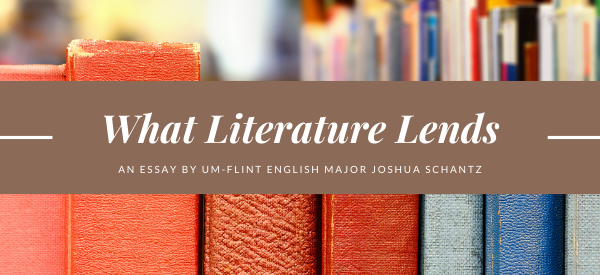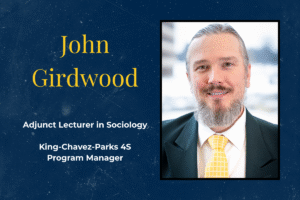Within the sphere of education, literature finds itself in an awkward place. It is true that even among college English departments, the vast majority of students will not seek higher education for the purpose of becoming a university professor. Rather, most will pursue a career in primary or secondary education as teachers or combine it with another major to enter the business world. That being the case, the question may be posed: exactly what is the value of a literature department except for those who aspire to becoming professors of literature? From my own experience, there is much that I could say in favor of literature in general, and enough to where I believe it ought to be dignified with its own autonomous department in public universities.

For myself, literature was not something I took pleasure in until senior year in high school. In my perception of the subject, reading classics or even contemporary works (fictional or otherwise) was a wasted exercise. In my mind, I would have said that whatever could have been digested through reading could just as easily be introduced through superior media like film or television. And in what does literature consist if not in writing?It was while reading the prologue to Geoffrey Chaucer’s The Canterbury Tales in groups in my honors Brit Lit class that the first sparks of passion for literature lighted in me. I became particularly enamored with the heroic couplets with which much of the poem was written, and shortly thereafter I asked for the complete work as a gift for Christmas, received it and ended up reading the whole thing within a month. From that point forward, I was hooked for good. I went back instantly to read Shakespeare’s Macbeth which my Brit Lit class had read and discussed some four months before. At that time, however, I scarcely read the text in depth. I would finish the required readings just minutes before class started and merely try to sound like I knew what I was talking about. It worked for the moment, but I regret that I had not been engaged to the material sooner.
From there I proceeded to read more Shakespeare, starting with Othello, and going to read several other plays in turn. I read some of the great Italian classics: Dante’s The Divine Comedy and much of Boccaccio’s The Decameron. I found myself particularly attracted to Renaissance poetryand theatre, much of which also contained vast amounts of verse dialogue. It is particularly in my appreciation of the classics that I learned reasons for why literature as a whole, with its diverse cultural influences, periods, and perspectives, deserves to be revered in academia, and in public, as well as private, life.
It would be a tremendous injury to literature to think that its stomping grounds ought to be primarily private. On the contrary, literature is, by nature, public. Yet, literature is not merely the creative exposition of philosophical inquiry or communication via fictional narrative. That is to say, it is not merely a vehicle for public debate about contemporary issues, but also about what it means to be a human being. As Neil Gaiman once said, “Without our stories, we are incomplete.” Literature therefore invites us, not only to share our views, but also to see people in new ways. Part of the way it is achieved is to see the diverse characters poets, novelists and even biographers have sketched throughout the history of our species.
There are more than merely experiential merits to literary study, of course. From my own experience reading Shakespeare alone, a rich store of rhetorical power may be distilled by the student who is willing to dissect the speeches delivered by his many characters on any number of issues ranging from political tension to relationship troubles. And even on the topic of personal relationships, literature has the potential to lend emotional intelligence. The personal drama of characters towards each other may be fictional, but how they interact may serve as a model to be followed or avoided. It is, therefore, in experience, expression and emotion that literature thrives.
As a student I find myself indebted to what I have read for much of my outlook on life and human interactions. This has not been achieved to nearly the same effect by reading philosophy or textbooks on politics and sociology in my own experience while attending university. Sufficed to say, literary study has the undeniable potential to build bridges between people in a society, and the more diverse the stories from which we completion through the same, the greater the breadth of understanding from one person to another may become. Furthermore, we can gain priceless lessons on finding ways to express our thoughts and feelings with precision and clarity, as well as becoming more aware of the endless potential interactions we may face and how we might engage in them.
Learn more about the UM-Flint Department of English: https://www.umflint.edu/english/english-department





